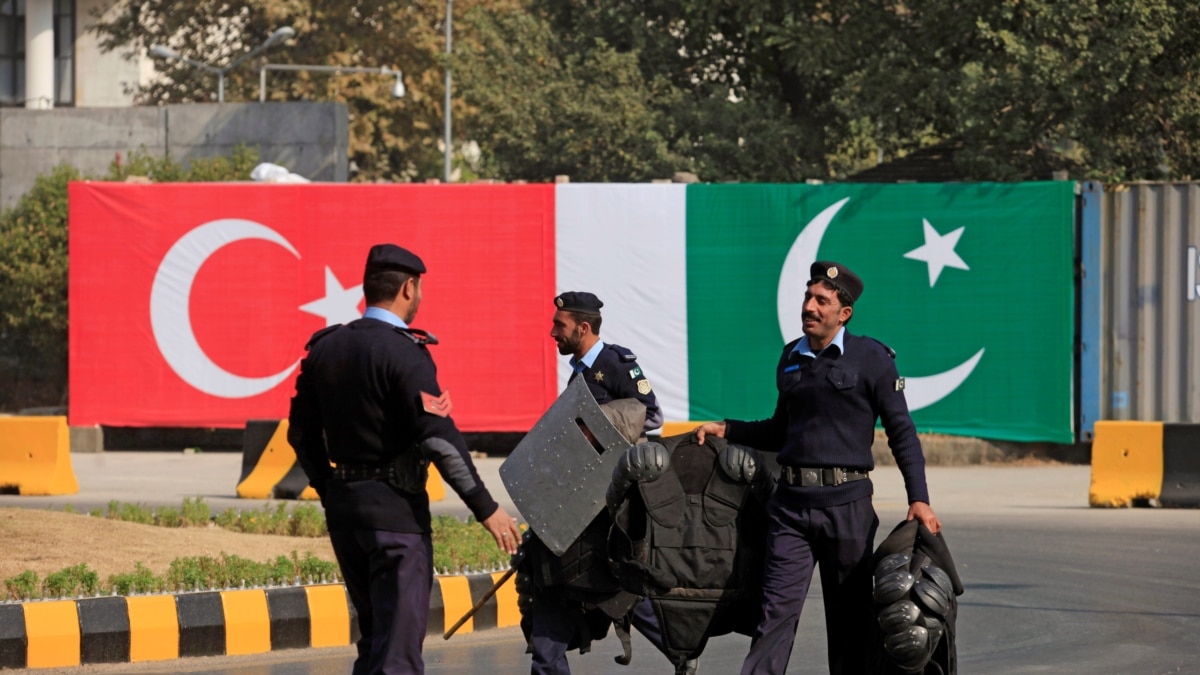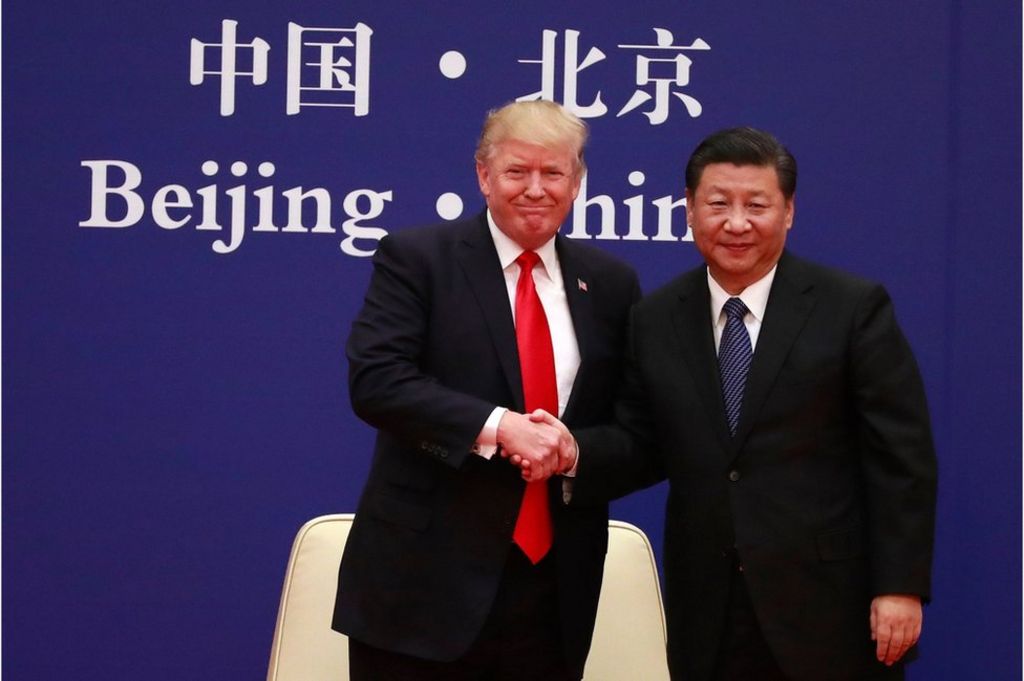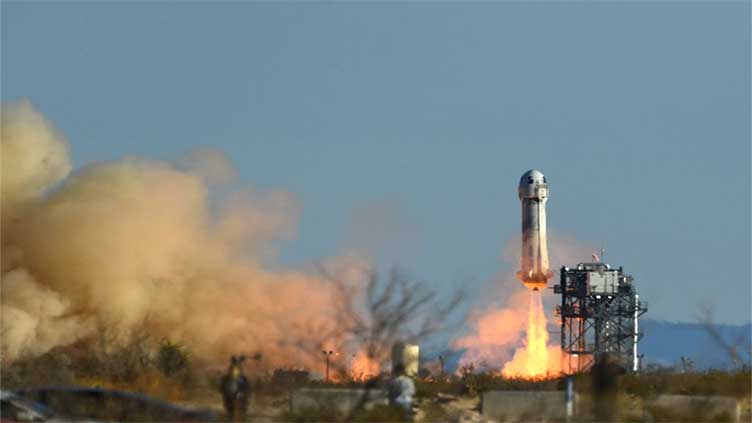Why Indian Businesses Are Avoiding Pakistan, Turkey, And Azerbaijan

Table of Contents
Geopolitical Tensions and Political Instability
The volatile geopolitical landscape of Pakistan, Turkey, and Azerbaijan presents a significant hurdle for Indian businesses seeking expansion. The inherent risks associated with political instability and regional conflicts outweigh the potential benefits for many companies.
India-Pakistan Relations
The history of conflict between India and Pakistan is deeply rooted, creating a climate of mistrust that severely impacts bilateral trade and investment. The unresolved Kashmir dispute, coupled with cross-border terrorism, fuels ongoing military tensions and fuels a significant trust deficit. This has resulted in periods of trade restrictions, sanctions, and unpredictable disruptions, making it challenging for Indian businesses to operate in Pakistan.
- Ongoing military tensions: The frequent escalations along the Line of Control (LoC) create an unpredictable environment for business.
- Border disputes: The unresolved territorial disputes cast a long shadow over any potential economic cooperation.
- Trade sanctions: Sanctions and trade restrictions imposed by either country frequently hinder trade flows.
- Trust deficit: The lack of trust between the two governments severely limits business confidence and partnership opportunities.
Regional Instability in the Caucasus (Azerbaijan)
Azerbaijan's location in the Caucasus region, a historically volatile area, presents unique challenges for Indian businesses. The lingering effects of the Nagorno-Karabakh conflict and ongoing geopolitical tensions in the region create a heightened security risk. Logistical challenges, including potential disruptions to supply chains, further deter investment.
- Nagorno-Karabakh conflict: The unresolved conflict creates uncertainty and potential security risks for businesses operating in the region.
- Geopolitical risks: The region's strategic location and involvement of major global powers introduce unpredictable geopolitical risks.
- Security concerns: The potential for political instability and violence poses significant security concerns for Indian businesses and their employees.
- Logistical challenges: Infrastructure limitations and potential disruptions to transport routes increase the cost and complexity of doing business.
Turkey's Complex Geopolitical Landscape
Turkey's increasingly complex relationship with various global powers introduces uncertainty for Indian businesses. While Turkey presents economic opportunities, the shifting political alliances and potential for regulatory changes introduce significant risks. Concerns regarding political risk and regulatory hurdles deter Indian companies from making large-scale investments.
- Shifting alliances: Turkey's fluctuating relationships with other countries can impact the overall business climate.
- Political risks: Political instability and potential changes in government policy create an uncertain investment environment.
- Regulatory uncertainty: Unclear regulations and potential changes in laws can hinder business operations.
- Economic volatility: Fluctuations in the Turkish economy further add to the investment risk.
Economic Factors and Business Challenges
Beyond geopolitical concerns, significant economic factors deter Indian businesses from engaging deeply with Pakistan, Turkey, and Azerbaijan. These include substantial trade barriers, infrastructural limitations, and economic instability.
Trade Barriers and Tariffs
High tariffs, complex customs procedures, and other non-tariff barriers significantly increase the cost and complexity of trade between India and these countries. These barriers make it less competitive compared to trading with other nations that offer more favorable conditions.
- High import duties: High tariffs on Indian goods make them less competitive in these markets.
- Complex customs procedures: Bureaucratic hurdles and lengthy customs processes increase the cost and time of importing and exporting goods.
- Non-tariff barriers: Various regulations and standards can act as significant barriers to trade.
- Lack of trade agreements: The absence of comprehensive trade agreements further hinders bilateral trade.
Infrastructure and Logistics
Inadequate infrastructure across these countries presents another significant challenge. Poor transportation networks, communication limitations, and logistical bottlenecks substantially increase the cost and time required for business operations. This lack of efficient infrastructure makes it difficult for Indian businesses to compete effectively.
- Poor infrastructure: Lack of adequate roads, ports, and other infrastructure significantly impacts logistics.
- Logistical bottlenecks: Inefficient customs procedures and transportation networks lead to delays and increased costs.
- High transportation costs: The lack of efficient infrastructure translates to higher transportation costs for businesses.
- Lack of connectivity: Limited internet access and communication infrastructure hinder efficient business operations.
Currency Fluctuations and Economic Uncertainty
Economic instability and currency volatility in Pakistan, Turkey, and Azerbaijan introduce substantial investment risks. These fluctuations make it difficult for Indian businesses to accurately predict costs and returns, thus discouraging large-scale investment.
- Currency volatility: Significant fluctuations in exchange rates introduce significant risk to investment returns.
- Economic instability: Economic downturns and uncertainty make it risky to invest in these markets.
- Inflation: High inflation rates erode the value of investments and increase the cost of doing business.
- Foreign exchange risks: Managing foreign exchange risks adds complexity and expense to international business transactions.
Conclusion
In summary, a combination of significant geopolitical tensions and substantial economic challenges significantly deters Indian businesses from investing heavily in Pakistan, Turkey, and Azerbaijan. The risks associated with political instability, trade barriers, and infrastructural limitations often outweigh the perceived opportunities. While potential benefits exist, understanding the intricacies of "Why Indian Businesses Are Avoiding Pakistan, Turkey, and Azerbaijan" is crucial for any Indian company considering expansion into these regions. Further research and a thorough risk assessment are essential before entering these markets.

Featured Posts
-
 Space Defense Firm Voyager Technologies Announces Public Offering
May 18, 2025
Space Defense Firm Voyager Technologies Announces Public Offering
May 18, 2025 -
 Michelle Williams Dying For Sex Performance A Deeper Look At The Clasp
May 18, 2025
Michelle Williams Dying For Sex Performance A Deeper Look At The Clasp
May 18, 2025 -
 Former Red Sox Closer On Free Agency His Decision Explained
May 18, 2025
Former Red Sox Closer On Free Agency His Decision Explained
May 18, 2025 -
 Trump Open To China Trip For Xi Jinping Meeting
May 18, 2025
Trump Open To China Trip For Xi Jinping Meeting
May 18, 2025 -
 Blue Origin Cancels Rocket Launch Vehicle Subsystem Problem Delays Mission
May 18, 2025
Blue Origin Cancels Rocket Launch Vehicle Subsystem Problem Delays Mission
May 18, 2025
Latest Posts
-
 Stephen Miller To Replace Mike Waltz As National Security Advisor
May 18, 2025
Stephen Miller To Replace Mike Waltz As National Security Advisor
May 18, 2025 -
 Suffolk Boys Heroic Rescue Saving A Child At Great Wolf Lodge
May 18, 2025
Suffolk Boys Heroic Rescue Saving A Child At Great Wolf Lodge
May 18, 2025 -
 The Swim With Mike Program A Community For Trojan Swimmers
May 18, 2025
The Swim With Mike Program A Community For Trojan Swimmers
May 18, 2025 -
 Finding Community The Impact Of Swim With Mike On Trojan Swimmers
May 18, 2025
Finding Community The Impact Of Swim With Mike On Trojan Swimmers
May 18, 2025 -
 Swim With Mike Program Fostering Community Among Trojan Swimmers
May 18, 2025
Swim With Mike Program Fostering Community Among Trojan Swimmers
May 18, 2025
